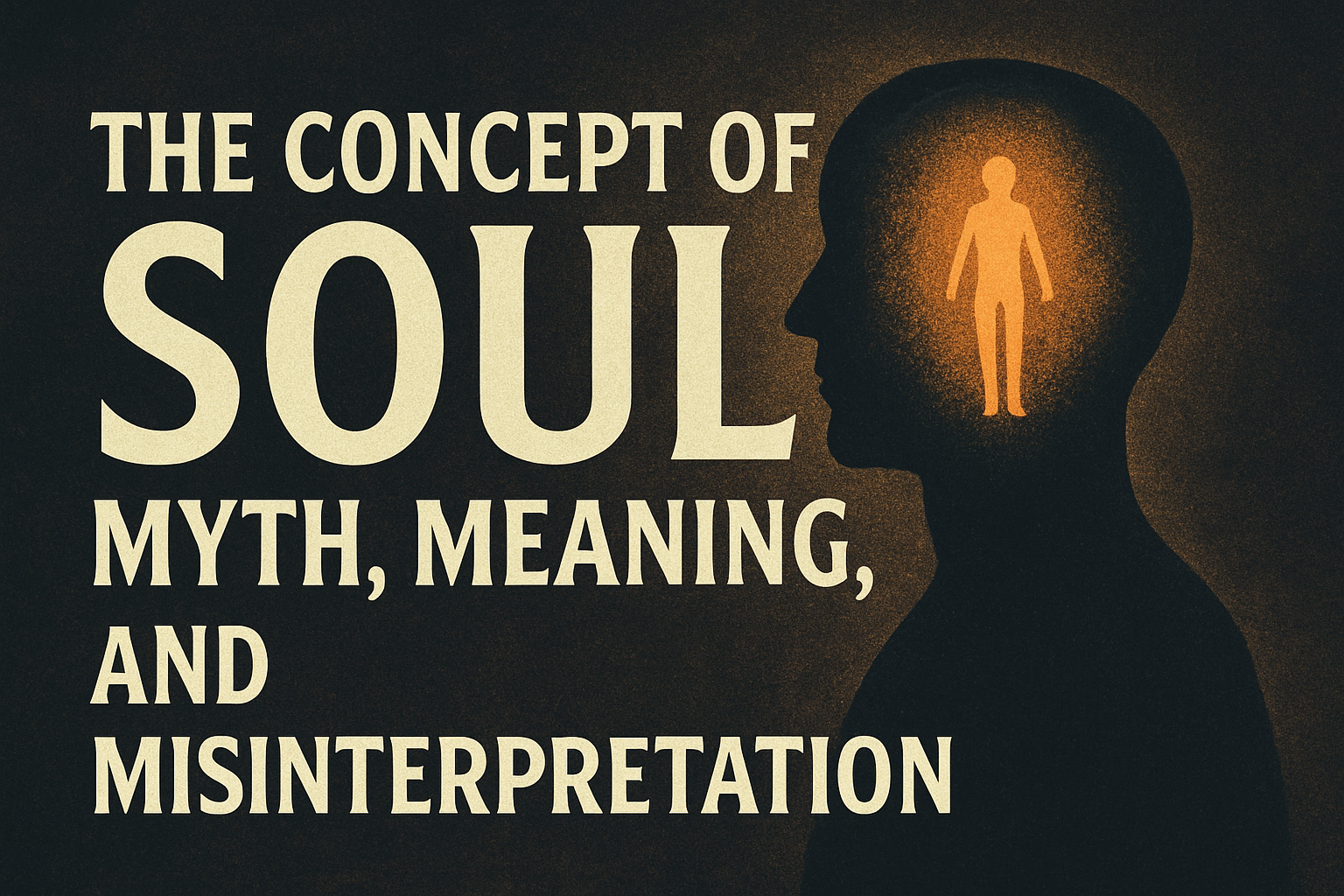The Concept of Soul: Myth, Meaning, and Misinterpretation
Posted on September 18, 2025 • 4 min read • 87 views

Advertisement
In This Article
For centuries, people have spoken about the soul as the eternal essence of who we are. Across religions, philosophies, and cultures, the soul is believed to be the invisible core of human identity, something that lives on even when the body perishes. But what if much of what we believe about the soul is rooted more in myth than in truth?
The very word “soul” carries layers of history, culture, and interpretation that have shaped human thought in ways we rarely question. Let’s dive deeper into the meaning of the soul, the myths behind it, and why its existence is still debated today.
## What Is the Soul Supposed to Be?
Traditionally, the soul is seen as:
1. The eternal part of us that survives after death
2. The seat of consciousness, morality, and identity beyond the physical body
3. The connection to the divine or the spiritual world
In everyday language, when people say someone has a “kind soul,” they are referring to their inner nature, not something that can be scientifically measured.
But this raises a question: Is there really such a thing as a soul, or is “soul” just a word we use for things we cannot explain?
## The Myth Behind the Word “Soul”
The soul as a concept is powerful, but it may also be misunderstood. Throughout history, humans have searched for meaning beyond physical life. The soul became a comforting explanation—an idea that death is not the end.
Think about it:
1. When someone dies, what do we ask about? The body.
2. When a person is unconscious, what do doctors try to stabilize? The body.
The focus is always on the physical, because that’s what we can actually see and measure.
This suggests that the soul may not be a separate entity, but rather a symbolic way of describing the unseen processes that make us alive.
## Biology vs the Idea of the Soul
From a biological perspective, the body works much like an electrical device.
1. The brain operates through complex electrical signals.
2. The heart pumps blood to sustain life.
3. Nerves carry messages that control movement and awareness.
All of these systems work together to create consciousness, thought, and emotion. When these systems shut down, life ends.
So far, there is no scientific evidence of a soul attached to the body in any way. What we do know is that life is maintained by physical processes, not by something immaterial.
## The Afterlife Question
One of the biggest arguments for the soul is the belief in an afterlife. Religions often teach that the soul continues beyond death, either in heaven, reincarnation, or another spiritual realm.
But here’s the truth: up until now, no one can say with certainty that they remember anything after life. Near-death experiences exist, but they can often be explained by brain activity under extreme stress.
This leaves the idea of the soul as an unproven belief rather than a fact.
## Why Humans Created the Idea of the Soul
So why does the concept of the soul exist at all?
1. To ease the fear of death – Believing in the soul makes it easier to accept mortality
2. To explain consciousness – Before neuroscience, the soul was the only way to explain thought and awareness
3. To give life meaning – If the soul is eternal, then life is not just temporary; it becomes part of a larger, spiritual journey
In many ways, the word “soul” was created to make humans feel that they don’t just die and disappear forever.
## Is There Really a Soul?
The debate continues. On one hand, spiritual traditions hold onto the soul as the essence of eternal life. On the other hand, science points to the brain and body as the source of consciousness and identity.
Right now, there is no concrete evidence of a soul that exists beyond the body. The word remains more symbolic than scientific.
## Final Thoughts
The soul has been one of the most enduring concepts in human history, shaping religions, philosophies, and personal beliefs. Yet, when we look closer, we find that the soul may not be a mystical entity at all.
It may simply be a human attempt to explain what we don’t yet fully understand—the mystery of life, death, and consciousness.
So, is there really a soul? Or is the soul just a word we use to comfort ourselves in the face of the unknown? The answer may depend less on evidence and more on what you choose to believe.
## Frequently Asked Questions About the Soul
1. What does the word soul mean?
The soul is traditionally seen as the eternal essence of a person, but it is also used symbolically to describe one’s inner nature.
2. Is there scientific proof of the soul?
No. So far, science has not found evidence of a soul separate from the body. Consciousness can be explained by brain and body functions.
3. Why do people believe in the soul?
The soul provides comfort about death, helps explain consciousness, and gives life a deeper meaning.
4. Do all religions believe in the soul?
Most major religions have some version of the soul, though they define it differently. For example, Christianity, Islam, and Hinduism all describe it in unique ways.
5. Is the soul just a myth?
Some see it as a myth, others as spiritual truth. Without proof, it remains a matter of belief and interpretation.
Advertisement

Comments (0)
Leave a Reply
Be the first to comment.